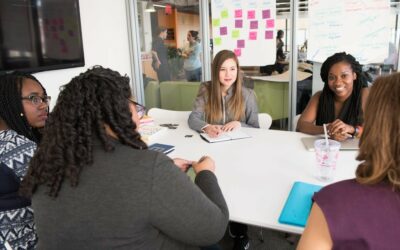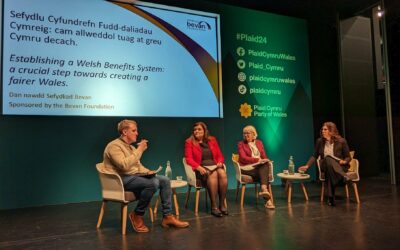 Bevan Foundation
Bevan Foundation 
In the latest article about what the Bevan Foundation does, its director, Victoria Winckler, outlines how we develop practical solutions.
The Bevan Foundation’s work is all about solutions.
Very often, what grabs headlines are the problems – poverty, inequality, lack of progress on X, Y or Z. But over the last few years, we have been able to secure funding that has allowed us time and space to develop solutions as well. We’ve already made a significant contribution for example our work on new taxes saw three of our suggestions included in the Welsh Government budget, and some of our recommendations on developing the Valleys were included in the Welsh Government’s Valleys Task Force delivery plan.
Over the next three years, we want to take that emphasis further.
So how do we find solutions?
If finding effective solutions was easy, Wales would be booming and I would be out of a job.
Our starting point to find solutions is understanding the problem: what causes it and what needs to change to solve it?
To do this effectively we often need to side-step sometimes widely-held views – even stereotypes – about solutions. Instead we listen to the views and experiences of people affected by a problem, and try to ‘co-produce’ solutions with them. This is not only a matter of principle, it also often generates the most original and practical ideas.
Sometimes the changes that matter most are relatively modest. For example, many of the young people without five good GCSEs that we worked with told us that scrapping college admin fees when they enroll would make a huge difference to them. This was such a small issue for politicians, officials and even some college leaders that they weren’t even aware that the fees existed!
Sometimes the changes are bigger, for example offering independent careers advice and guidance to all pupils from year 7 rather than just pupils at risk of being NEET in year 11, as now.
Our task is to listen to these ideas, and to translate and develop them into policy, legislative, fiscal or institutional changes.
We usually then try out our solutions with those who would be responsible for delivering them. For example, we discussed the emerging ideas to increase the opportunities for young people without five GCSEs at A-C with college leaders, school leaders, youth organisations and learning providers as well as young people themselves. By doing this we can learn about any practical obstacles – or even – rarely – resistance to the idea – as well as helping to fine-tune our recommendations.
Finding workable solutions is not quite the end of our work however. The next step, to be covered in the next article, is making them happen.
Victoria Winckler is Director of the Bevan Foundation


